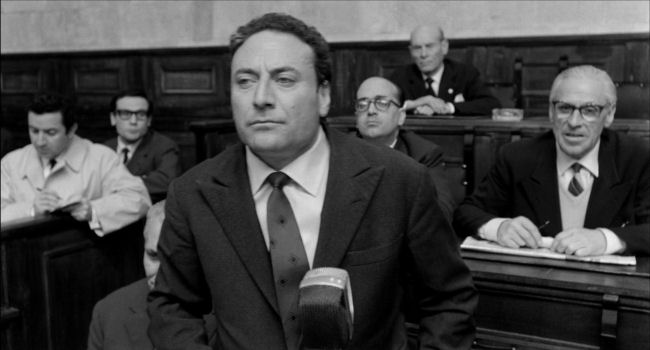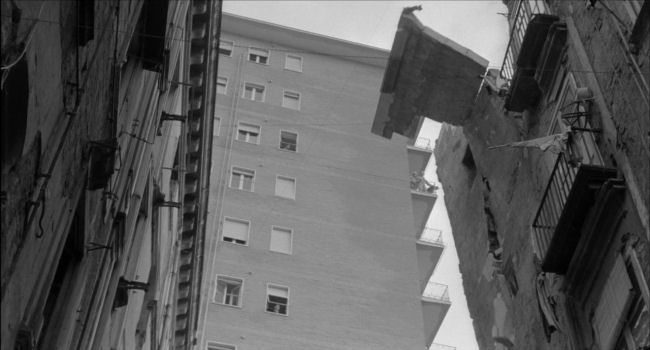
Why do the poor continually vote for the party that exploits and lowers their quality of life even further? Councilman De Vita puts this question to a group of angry, poor city dwellers in 1963's Hands over the City (Le mani sulla città). They're all being evicted from their old neighbourhood so the city council can demolish it and build a new one, the profits going to a contractor whose company happens to have several councilmen among its shareholders. This is a film of brilliant, unvarnished Neorealist style footage that serves a slightly varnished left-wing perspective. But the film is certainly not lacking in insight for that--the realism of the footage and focus of its political message puts this Francesco Rosi film in the tradition of Eisenstein.
"So who do we vote for?" says one of the protesters, "The Communists?" De Vita (Carlo Fermariello) responds, "Vote for those who don't profit at your expense!"

De Vita is presented throughout the film as a pure hearted champion of the people confronting on the city council a thoroughly corrupt opposition party currently in power. The movie crucially never allows the citizens to answer the question--why did you vote for these crooks in the first place? The lack of perspective weakens the film.
Rod Steiger, an American actor here playing an Italian man in an Italian film, plays Nottola, the man in charge of the construction company. The film begins with him explaining to some councilmen on his board how if they build on the dirt field they're standing in they can make a 5,000 percent profit.

Steiger gives this utterly corrupt man some solemn pathos in a general weariness as backroom deals threaten to turn against him or reports in the press cast him and his allies in a bad light. At one point he and De Vita are alone in one of Nottola's new buildings and Nottola shows him how the water is running, the lights work, the building has all the modern conveniences, why does De Vita stand in the way of progress? To which De Vita replies the poor he's evicting will never be able to afford to live in the places Nottola is building.
De Vita is an engineer and he leads an investigation into a disaster depicted in the movie's most impressive scene.

A cobblestone alley with hanging laundry and people going about their business in a way probably not unlike people a hundred years ago. Then, the side of a building falls on them.

It's clearly not a model, the chain reaction that leads to an entire half of a building collapsing is clearly exactly what it appears to be in the footage.

The whole rest of the film has an impressive realism, too, in showing the city council to be made up of fat, middle aged men. Everyone in this movie is a fat, middle aged man except for a call girl who falls asleep in the next room in one scene, complaining about how everyone's talking about business and politics.

Nottola feels he deserves respect, everyone in his party wearily pushes ahead with their conquest, not understanding De Vita's vitriol, perhaps really believing it when they accuse him of merely trying to win re-election with his investigation and denouncements. It becomes clear that the philosophy that Nottola espouses but can never directly articulate is one where some people simply must die off so that people in power can live well. Steiger helps the film a lot by not playing this like a cheap villain but like someone who's long ago resigned himself to this being the way of things.


No comments:
Post a Comment